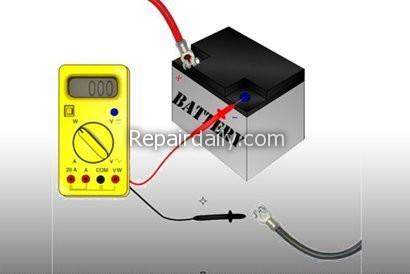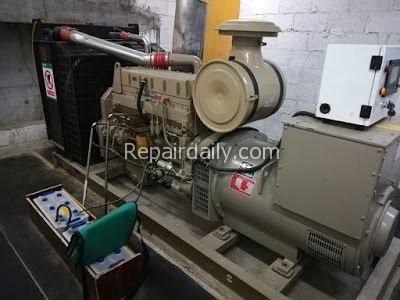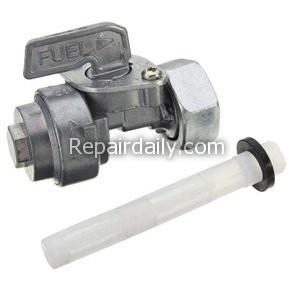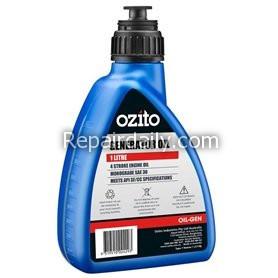

generator
Generators are necessary equipment for residential premises. They enable you to conduct a variety of important functions and can assist you in keeping your home operating in the event of an electrical loss, such as during a hurricane or severe storm. Your generator, though, may eventually stop working as it should, and you must check it on a regular basis to guarantee that it will operate when you need it.
Here are the frequent generator difficulties, as well as ways for dealing with them effectively, that you may encounter at some point during its lifetime.
1. Battery Failure

battery multimeter
Battery failure is one of the most prevalent problems with generators, regardless of model. The majority of the time, this is attributable to human mistake. It’s possible that the electrical board was turned off on purpose so that the generator could be securely worked on. Thankfully, this problem can be resolved by just looking at your circuit breaker to verify which slot has been flicked off. After you’ve found it, turn it back on, and the generator should be operational again.
If it isn’t, the problem could be due to shady relationships. Debris and dust may have accumulated on the terminals linking the battery to the generator, prohibiting the battery from making a secure connection. You’ll need a wire brush to solve this problem. Brush away any dirt or rust that has accumulated on these connectors over time with it.
After you’ve completed this step, double-check that the battery terminals aren’t loose. If that’s the case, you’ll need to retighten them. If none of these methods work for your generator, the battery may require to be serviced or replaced totally. You should also need to bump up your insulators for the generator, therefore, getting quality ones from insulator manufacturers is your best choice.
2. Coolant Leakage

generator coolant
Extreme temps created by an overburdened generator can lead the coolant hoses to wear out over time. They become far more vulnerable to leakage, which you should fix as soon as feasible to avoid utter failure. Thankfully, generator cooling upkeep is not difficult to grasp.
Each couple of years, you’ll need to examine the coolant hoses on your generator. Check to see if they’re fundamentally sound and free of evident damage. If that’s the case, you’ll need to get a new set installed. No matter what sort of generator you have, these hoses are reasonably low-priced and easy to put up.
Coolant leaks can also be avoided by replacing the coolant in these hoses on a regular basis. Consult with the generator’s producers to see how frequently they propose flushing the old coolant and replacing it for maximum performance.
3. Fastened Shut Off Valve

generator valve
It’s common practice to close the gasoline shutdown valve while you’re not operating your generator. This prevents the generator from turning on by mistake when it is not in use for lengthy stretches of time. Unfortunately, many generator users make the mistake of omitting to reopen this valve once the generator has been removed from storage. The generator then never turns on again.
Placing a label on the generator to indicate that the shutdown valve is closed is a straightforward solution to this issue. Then, when it’s time to take your generator out of the store, you can switch the valve back open and start it right away after it’s been inactive for a while.
4. Insufficient Fuel Levels

generator fuel level gauge
The intensity in your generators could be too insufficient for the engine to react when they fail to turn on. Despite the fact that this happens to a lot of generators, it’s critical to ensure that your fuel never runs out entirely. If this happens, air could enter into the system and hoses, which would be immensely difficult to remove.
Check the fuel level gauge each time you start your generator. It will be visible and should be reasonably correct. You should also monitor for symptoms of low fuel levels. These will ring like an alert, and you must act quickly to avoid causing irreversible harm to your generator.
Another problem with your generator is that it may run out of gasoline, even if the fuel level gauge says that there is more than enough fuel remaining. Your gasoline gauge is defective if this occurs, and it should be changed by a certified electrical contractor. You’ll be able to continue determining exact fuel levels after that.
5. Inadequate Oil Quantities

generator oil
You, like most individuals, most likely have a hectic programme. Maintaining the oil levels in your generator is definitely not at the top of your priority list. Your generator might just not power on if these levels aren’t adequate. Then, if your oil levels go too low, the engine may suffer irreparable harm due to a lack of lubrication.
Consistently keep this lubricant at the proper amounts to avoid engine malfunction. It’s also not hard to monitor them. You’ll need to locate the oil dipstick first, just as you would with a regular car. If the oil level is beneath the full line, continue to add fuel. It’s critical that you use the same sort of oil as prior to ensure safe and successful functioning. You should also look at the consistency and color of the oil. The oil has gone rancid if it appears black and sludge-like. You can then reciprocate by getting your generator completely cleansed and replacing the oil.
The Bottom Line
Whatever type of generator you have on your home, it will eventually fail to function effectively. If you polish up on the generator issues listed above, you’ll at most understand how to fix them. Then, regardless of what problems arise, you’ll know precisely what to do and be able to accomplish it quickly. Good Luck!
